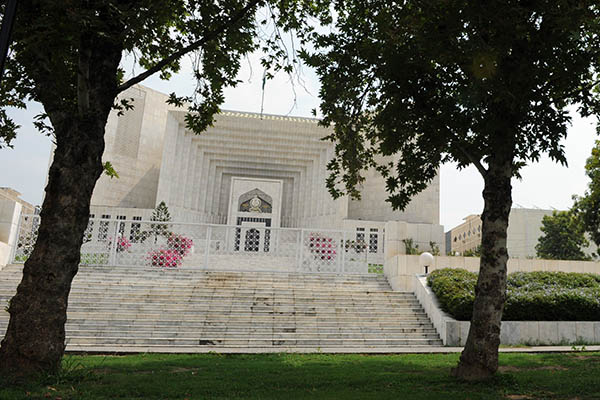
Aamir Qureshi—AFP
Unraveling the separation of powers underlined in Pakistan’s Constitution
Senate Chairman Raza Rabbani, addressing a gathering of lawyers in Quetta on Aug. 2, said Pakistan was being undermined by the violation of the principle of separation of powers underlined in the country’s Constitution. Also called trichotomy, this principle refers to the three central institutions of the state—Parliament, judiciary, executive—to remain within their constitutionally defined jurisdictions.
Referring to the now-defunct Article 58(2)(b) inserted in the Constitution to give the president the power to dismiss the popularly elected National Assembly at his discretion, he said the PPP-led government had removed it through the passage of the 18th Amendment. However, the controversial Articles 62 and 63—used to disqualify Nawaz Sharif as prime minister—were retained, allowing the judiciary to keep the legislature under threat on the yardstick of “piety.” He went on to hint that Sharif’s ouster was the judiciary’s defiance of the principle of trichotomy.
Article 58(2)(b) was used by military dictator Zia-ul-Haq to signal the dominance of the establishment in a “national security state,” a label most Pakistanis accept as the country’s exceptionalism. Today’s polarized society considers the judiciary to be acting excessively under Articles 62 and 63, but not too long ago another government was bullied by the Supreme Court through “street power”—something Rabbani did not touch upon.
Street power is not treated as a separate subject in the Constitution but facts on the ground tell us it gives immunity from all manner of crimes and renders the state helpless, as learned with much grief by the PMLN government when it tried to punish the mob gathered by clerical leader Tahirul Qadri in Lahore two years ago. Since then the opposition Tehreek-e-Insaf, acting as a mob both online and off, has virtually absolved its leader of the obligation of obeying court orders. When the judiciary acts up, as it did in India and Pakistan under powers of the suo moto, it can be pulled in. But the state loses its internal sovereignty if mobs jam the streets and threaten violence. This is the latest menace undermining the processes of justice and administration in Pakistan and needs correction.
